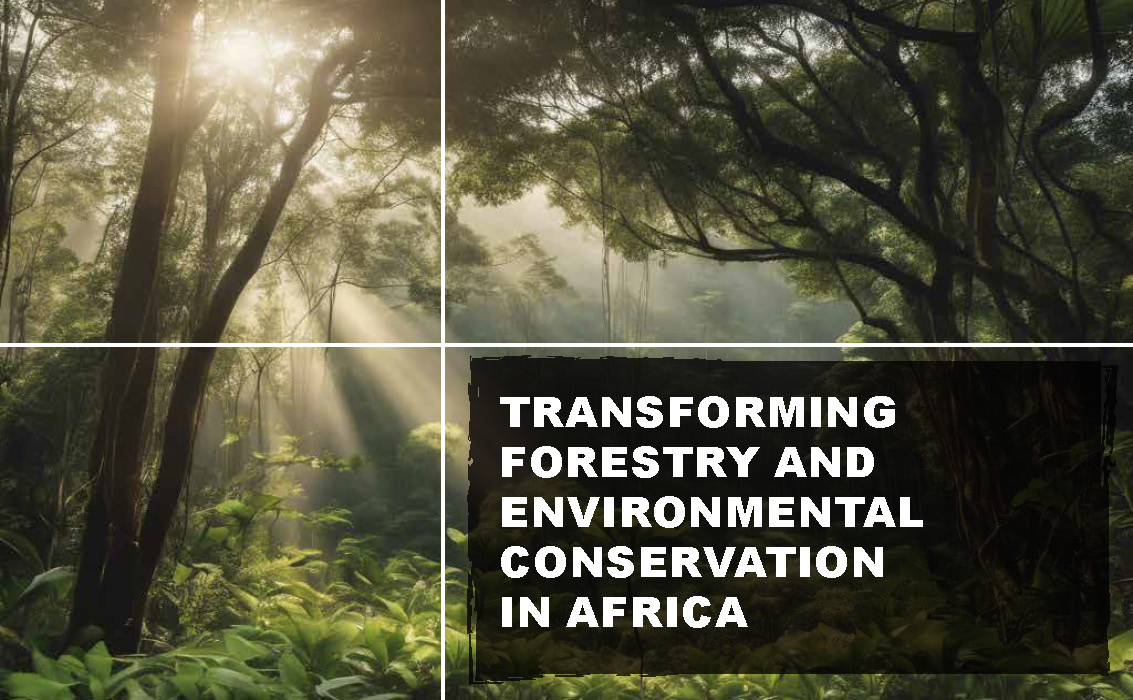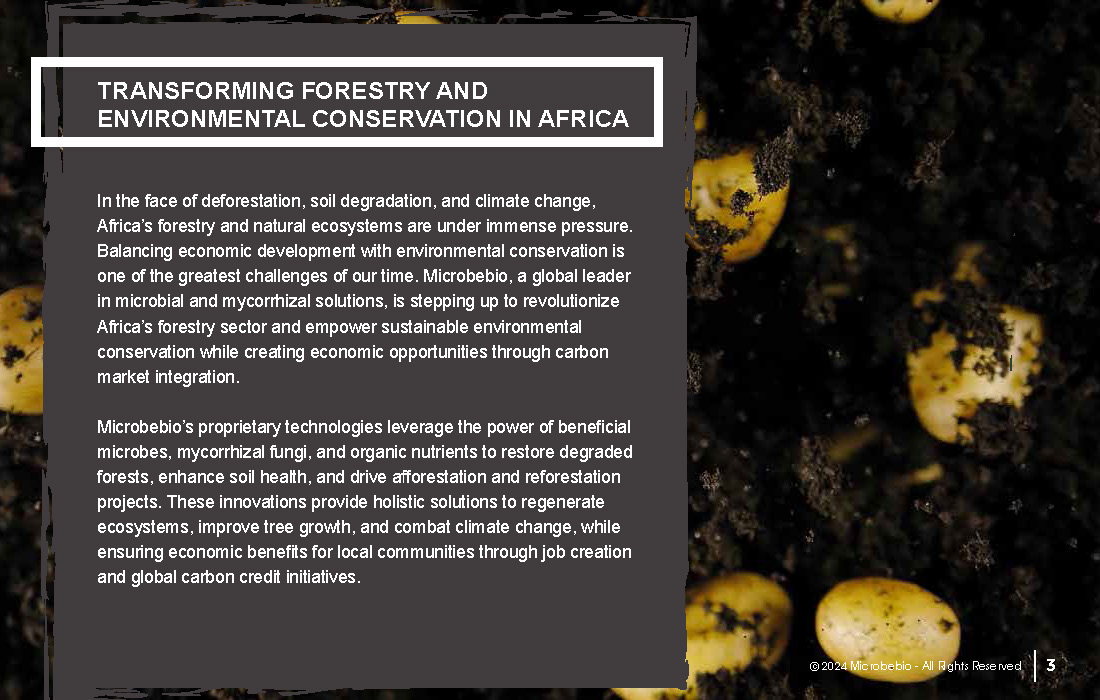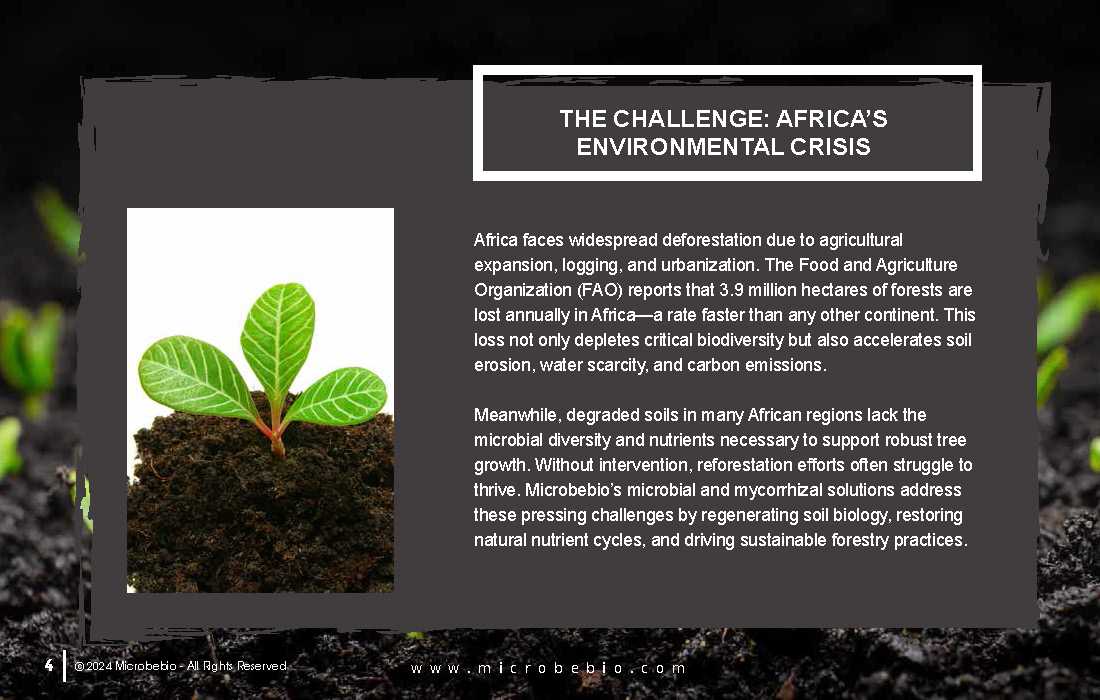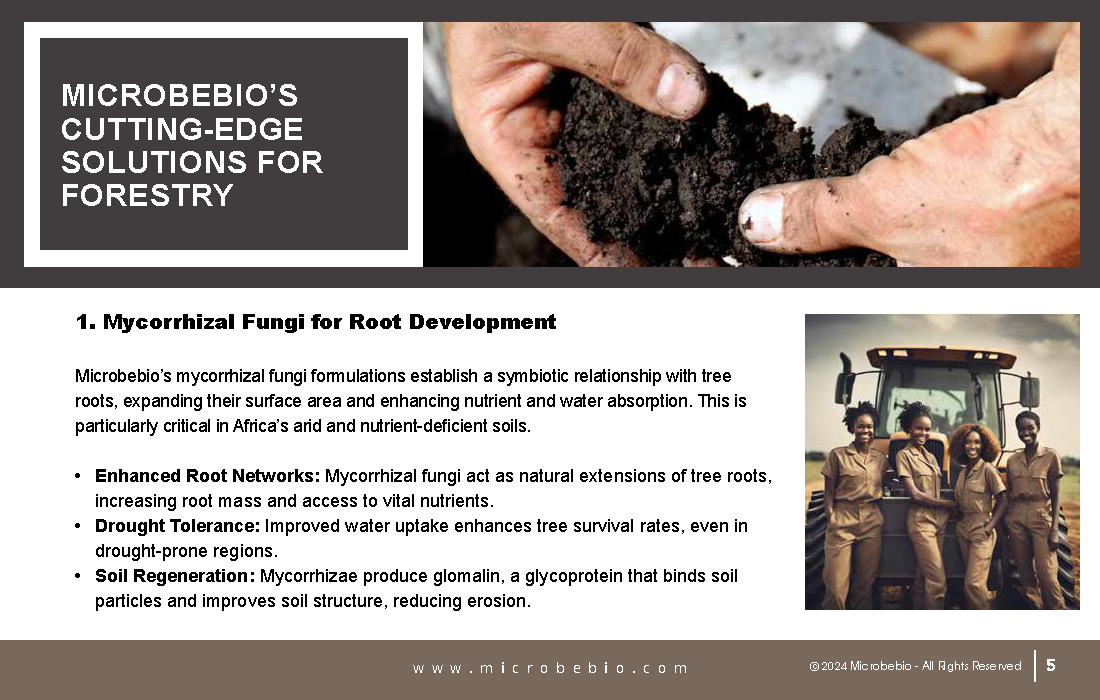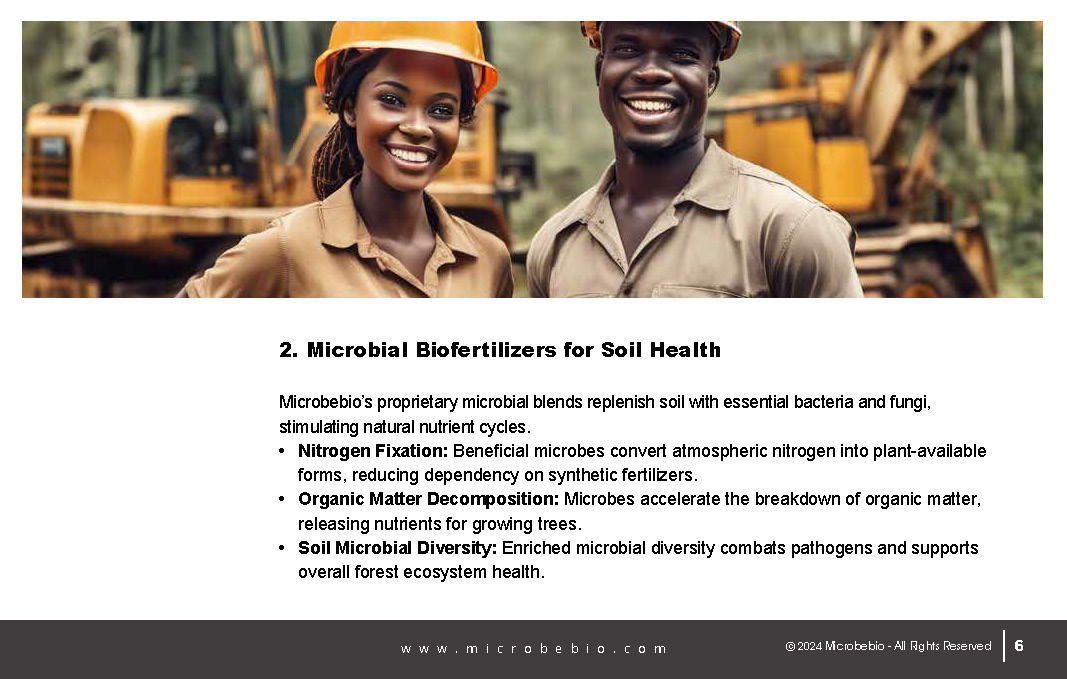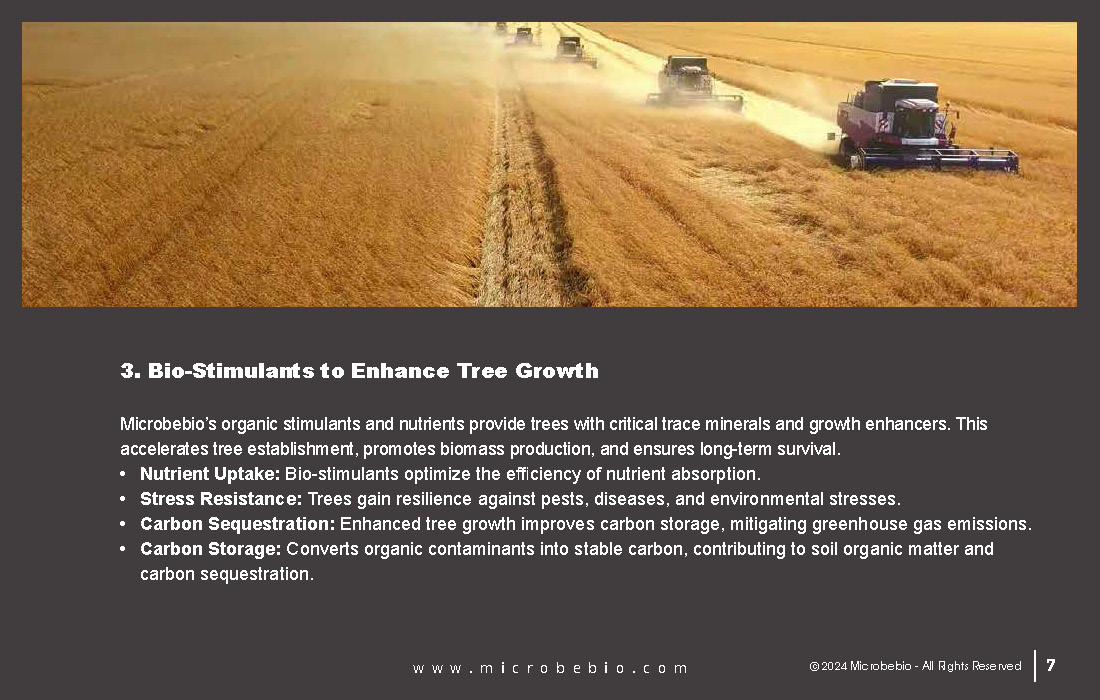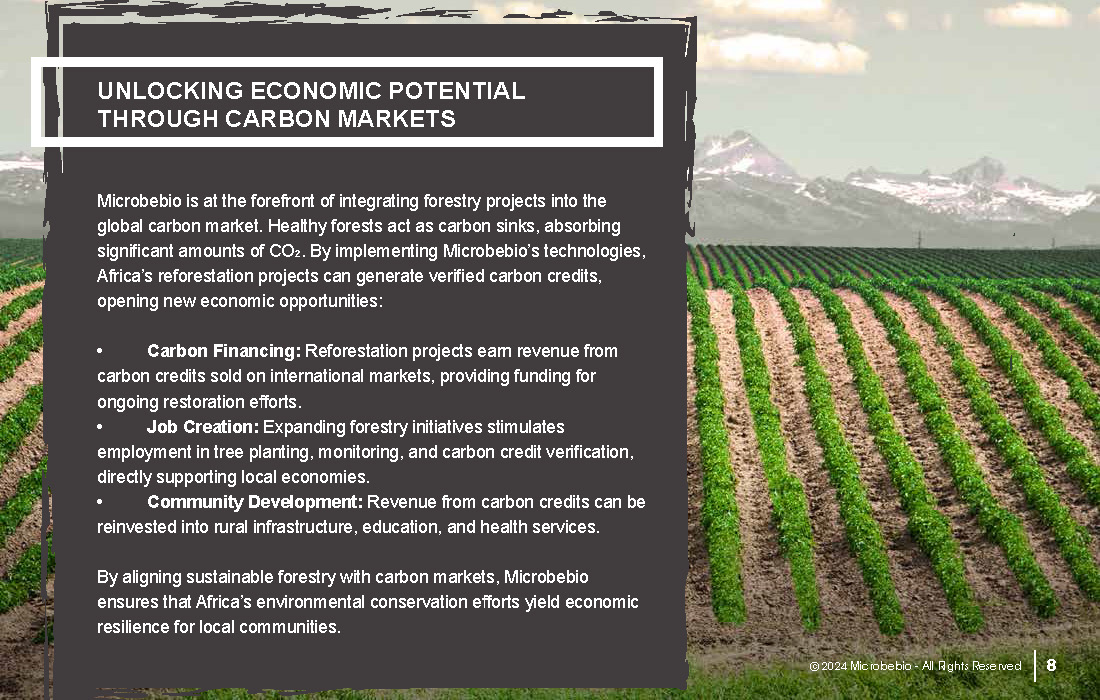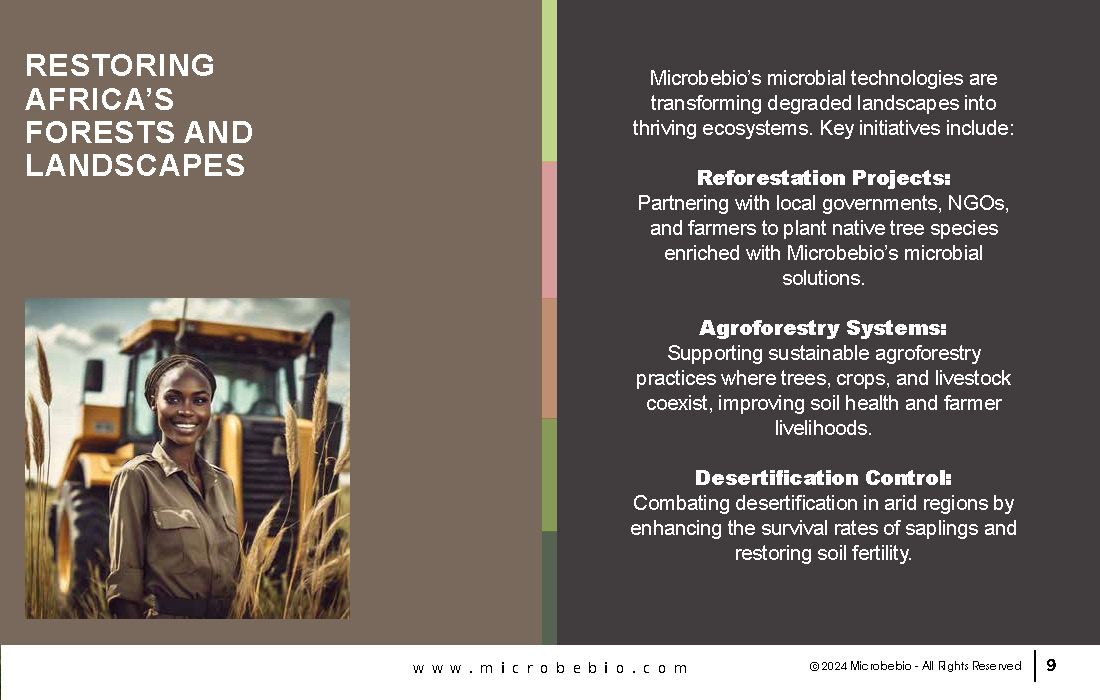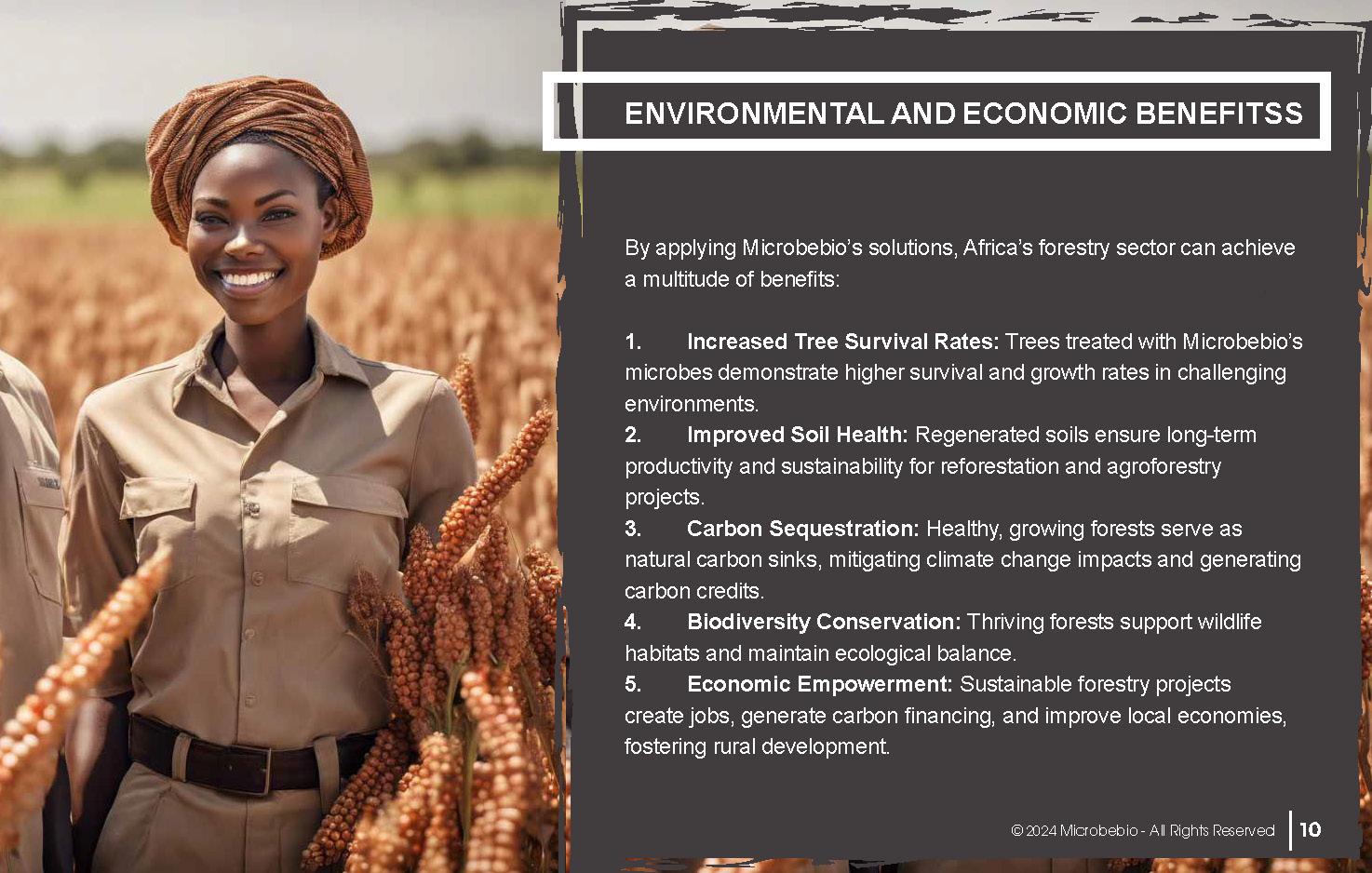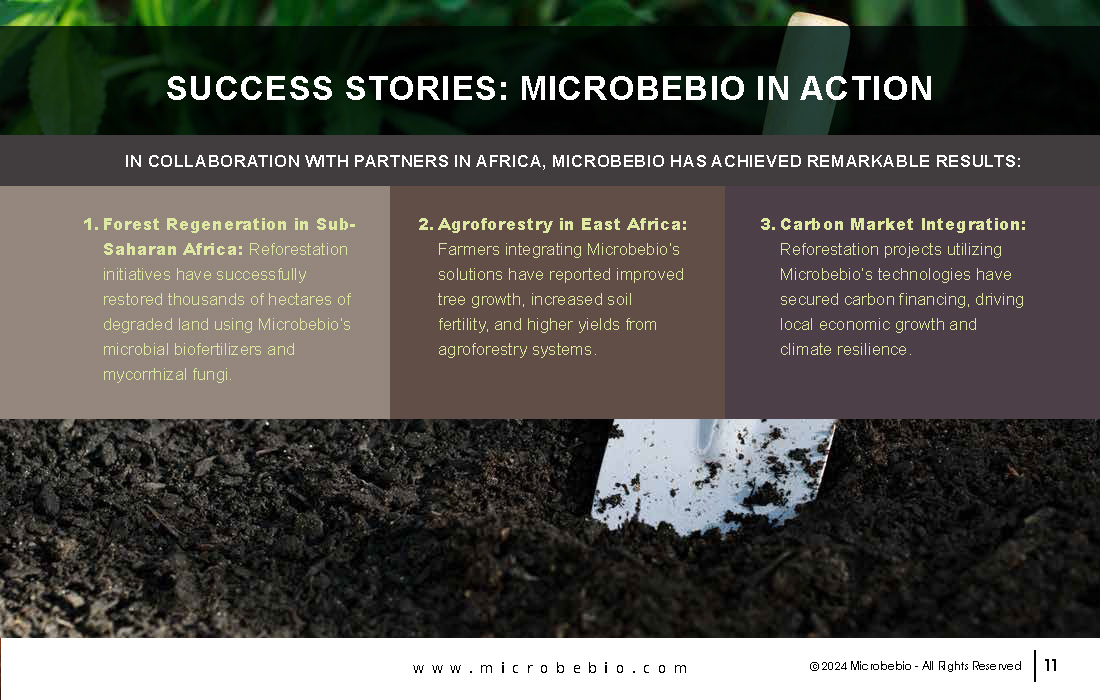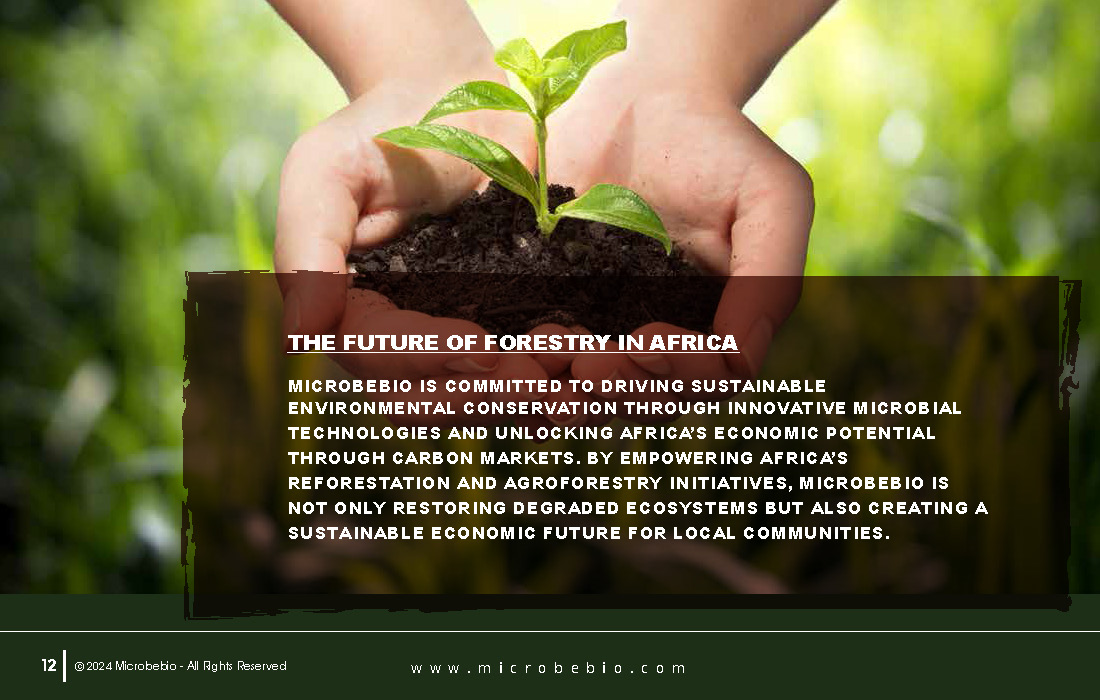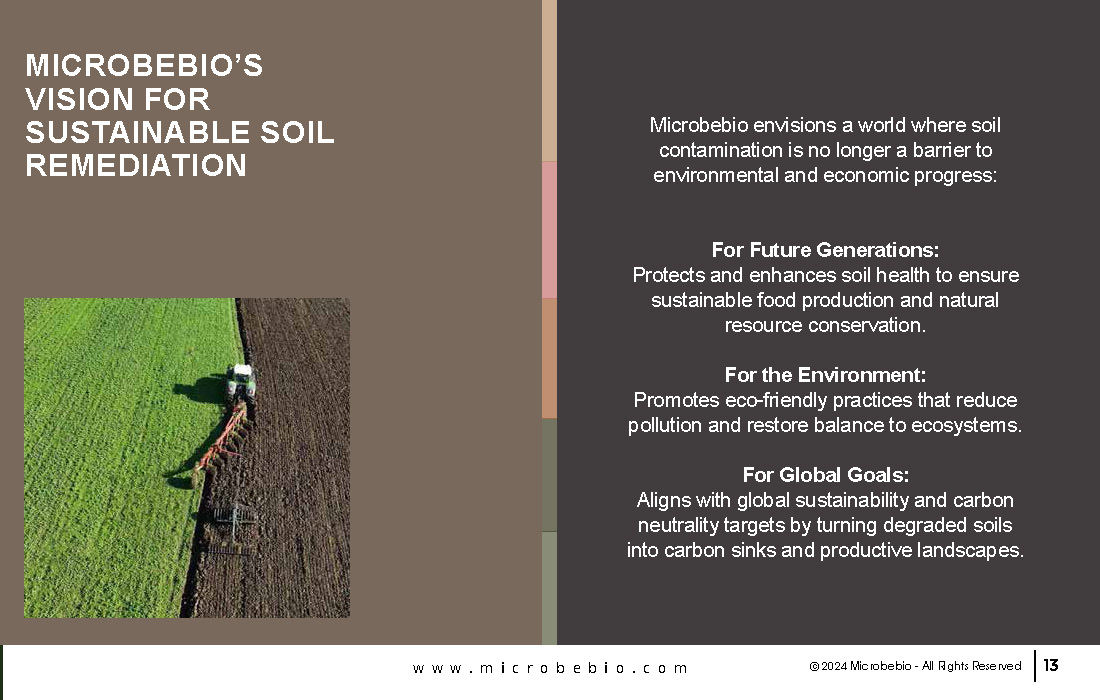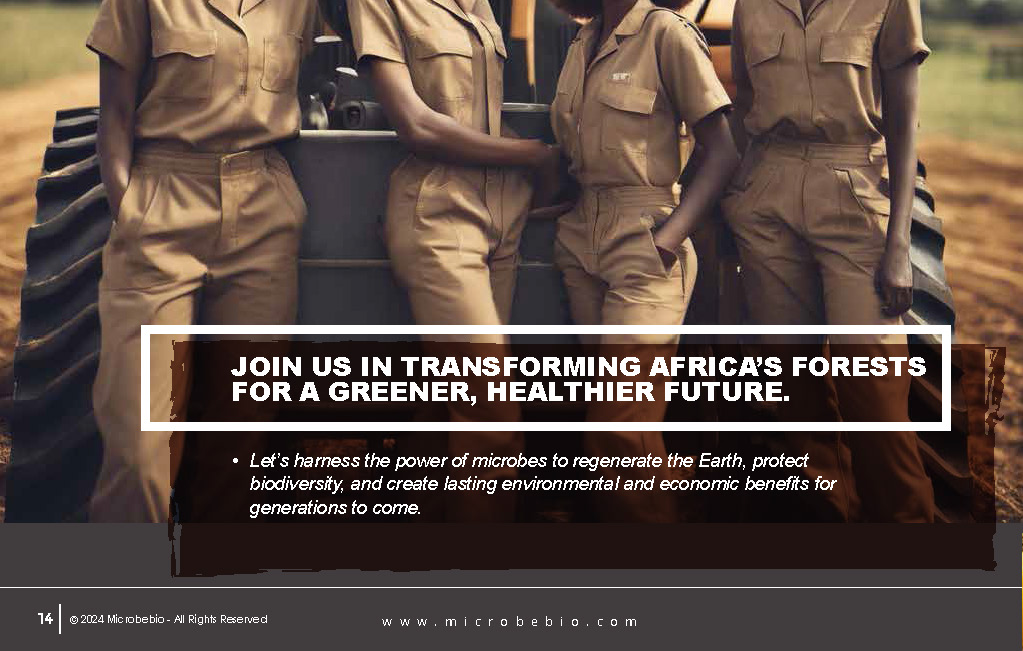Microbebio: Transforming Forestry and Environmental Conservation in Africa
In the face of deforestation, soil degradation, and climate change, Africa’s forestry and natural ecosystems are under immense pressure. Balancing economic development with environmental conservation is one of the greatest challenges of our time. Microbebio, a global leader in microbial and mycorrhizal solutions, is stepping up to revolutionize Africa’s forestry sector and empower sustainable environmental conservation while creating economic opportunities through carbon market integration.
Microbebio’s proprietary technologies leverage the power of beneficial microbes, mycorrhizal fungi, and organic nutrients to restore degraded forests, enhance soil health, and drive afforestation and reforestation projects. These innovations provide holistic solutions to regenerate ecosystems, improve tree growth, and combat climate change, while ensuring economic benefits for local communities through job creation and global carbon credit initiatives.
The Challenge: Africa’s Environmental Crisis
Africa faces widespread deforestation due to agricultural expansion, logging, and urbanization. The Food and Agriculture Organization (FAO) reports that 3.9 million hectares of forests are lost annually in Africa—a rate faster than any other continent. This loss not only depletes critical biodiversity but also accelerates soil erosion, water scarcity, and carbon emissions.
Meanwhile, degraded soils in many African regions lack the microbial diversity and nutrients necessary to support robust tree growth. Without intervention, reforestation efforts often struggle to thrive. Microbebio’s microbial and mycorrhizal solutions address these pressing challenges by regenerating soil biology, restoring natural nutrient cycles, and driving sustainable forestry practices.
Microbebio’s Cutting-Edge Solutions for Forestry
- Mycorrhizal Fungi for Root Development
Microbebio’s mycorrhizal fungi formulations establish a symbiotic relationship with tree roots, expanding their surface area and enhancing nutrient and water absorption. This is particularly critical in Africa’s arid and nutrient-deficient soils.
- Enhanced Root Networks: Mycorrhizal fungi act as natural extensions of tree roots, increasing root mass and access to vital nutrients.
- Drought Tolerance: Improved water uptake enhances tree survival rates, even in drought-prone regions.
- Soil Regeneration: Mycorrhizae produce glomalin, a glycoprotein that binds soil particles and improves soil structure, reducing erosion.
- Microbial Biofertilizers for Soil Health
Microbebio’s proprietary microbial blends replenish soil with essential bacteria and fungi, stimulating natural nutrient cycles.
- Nitrogen Fixation: Beneficial microbes convert atmospheric nitrogen into plant-available forms, reducing dependency on synthetic fertilizers.
- Organic Matter Decomposition: Microbes accelerate the breakdown of organic matter, releasing nutrients for growing trees.
- Soil Microbial Diversity: Enriched microbial diversity combats pathogens and supports overall forest ecosystem health.
- Bio-Stimulants to Enhance Tree Growth
Microbebio’s organic stimulants and nutrients provide trees with critical trace minerals and growth enhancers. This accelerates tree establishment, promotes biomass production, and ensures long-term survival.
- Nutrient Uptake: Bio-stimulants optimize the efficiency of nutrient absorption.
- Stress Resistance: Trees gain resilience against pests, diseases, and environmental stresses.
- Carbon Sequestration: Enhanced tree growth improves carbon storage, mitigating greenhouse gas emissions.
Unlocking Economic Potential Through Carbon Markets
Microbebio is at the forefront of integrating forestry projects into the global carbon market. Healthy forests act as carbon sinks, absorbing significant amounts of CO₂. By implementing Microbebio’s technologies, Africa’s reforestation projects can generate verified carbon credits, opening new economic opportunities:
- Carbon Financing: Reforestation projects earn revenue from carbon credits sold on international markets, providing funding for ongoing restoration efforts.
- Job Creation: Expanding forestry initiatives stimulates employment in tree planting, monitoring, and carbon credit verification, directly supporting local economies.
- Community Development: Revenue from carbon credits can be reinvested into rural infrastructure, education, and health services.
By aligning sustainable forestry with carbon markets, Microbebio ensures that Africa’s environmental conservation efforts yield economic resilience for local communities.
Restoring Africa’s Forests and Landscapes
Microbebio’s microbial technologies are transforming degraded landscapes into thriving ecosystems. Key initiatives include:
- Reforestation Projects: Partnering with local governments, NGOs, and farmers to plant native tree species enriched with Microbebio’s microbial solutions.
- Agroforestry Systems: Supporting sustainable agroforestry practices where trees, crops, and livestock coexist, improving soil health and farmer livelihoods.
- Desertification Control: Combating desertification in arid regions by enhancing the survival rates of saplings and restoring soil fertility.
Environmental and Economic Benefits
By applying Microbebio’s solutions, Africa’s forestry sector can achieve a multitude of benefits:
- Increased Tree Survival Rates: Trees treated with Microbebio’s microbes demonstrate higher survival and growth rates in challenging environments.
- Improved Soil Health: Regenerated soils ensure long-term productivity and sustainability for reforestation and agroforestry projects.
- Carbon Sequestration: Healthy, growing forests serve as natural carbon sinks, mitigating climate change impacts and generating carbon credits.
- Biodiversity Conservation: Thriving forests support wildlife habitats and maintain ecological balance.
- Economic Empowerment: Sustainable forestry projects create jobs, generate carbon financing, and improve local economies, fostering rural development.
Success Stories: Microbebio in Action
In collaboration with partners in Africa, Microbebio has achieved remarkable results:
- Forest Regeneration in Sub-Saharan Africa: Reforestation initiatives have successfully restored thousands of hectares of degraded land using Microbebio’s microbial biofertilizers and mycorrhizal fungi.
- Agroforestry in East Africa: Farmers integrating Microbebio’s solutions have reported improved tree growth, increased soil fertility, and higher yields from agroforestry systems.
- Carbon Market Integration: Reforestation projects utilizing Microbebio’s technologies have secured carbon financing, driving local economic growth and climate resilience.
The Future of Forestry in Africa
Microbebio is committed to driving sustainable environmental conservation through innovative microbial technologies and unlocking Africa’s economic potential through carbon markets. By empowering Africa’s reforestation and agroforestry initiatives, Microbebio is not only restoring degraded ecosystems but also creating a sustainable economic future for local communities.
Join us in transforming Africa’s forests for a greener, healthier future. Let’s harness the power of microbes to regenerate the Earth, protect biodiversity, and create lasting environmental and economic benefits for generations to come.
Trending Hashtags:
#Microbebio #SustainableForestry #EnvironmentalConservation #ReforestationAfrica #CarbonCredits #Agroforestry #SoilHealth #ClimateAction #CarbonSequestration #TreePlanting #MicrobialSolutions #MycorrhizalFungi #RestoreTheEarth #GreenAfrica #DesertGreening #EcoInnovation #EconomicResilience

